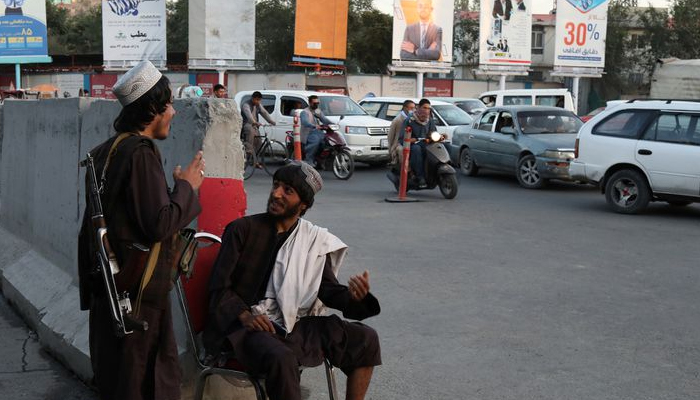Taliban must respect rights, guarantee security as conditions for help: EU
September 03, 2021

- In order to support the Afghan population, "we will have to engage with the new government in Afghanistan," says Josep Borrell.
- Borrell states that the level of co-operation will depend on the Taliban's willingness to fulfil certain conditions.
- The EU aims to coordinate its contacts with the Taliban through a joint EU presence in Kabul to oversee evacuations, EU foreign policy chiefs states.
BRDO, SLOVENIA: The European Union Foreign Policy Chief Josep Borrell on Friday said that EU is ready to engage with the new Taliban government in Kabul but the group must respect human rights, including those of women, and not allow Afghanistan to become a base for terrorism.
During a meeting of EU foreign ministers in Slovenia, Borrell said: "In order to support the Afghan population, we will have to engage with the new government in Afghanistan."
However, the level of co-operation will depend on the Taliban's willingness to fulfil certain conditions, he said. Nor did this mean formal recognition of the Taliban.
Borrell said that the new government must prevent the country from again becoming a breeding ground for militants, as it was during the Taliban's previous time in power. It must also respect human rights, the rule of law and freedom of the media.
It should also set up a transitional government through negotiations among the country's political forces, Borrell said.
"It is an operational engagement, and this operational engagement will increase depending on the behaviour of this government," he told reporters.
The Taliban, whose 1996-2001 rule was marked by repression and strict Islamic law that curtailed women's rights, have yet to name a government more than two weeks since they swept back into power with the collapse of the Western-backed government and the end of the 20-year international mission there.
Many Afghans and foreign governments and donors fear a return to such rule.
Borrell said the new government in Kabul must also grant free access to humanitarian aid, respecting EU procedures and conditions for delivery.
"We will increase humanitarian aid, but we will judge them according to the access they provide," Borrell said.
Aid agencies have warned that Afghanistan is facing a humanitarian catastrophe amid an economic crisis brought on by the conflict, a drought and the COVID-19 pandemic. About 18 million Afghans — roughly half the population — are already in need of humanitarian help, according to EU experts.
The EU aims to coordinate its contacts with the Taliban through a joint EU presence in Kabul to oversee evacuations and to ensure that a new Afghan government fulfils its commitments, should security conditions make it safe to do so, Borrell said.











